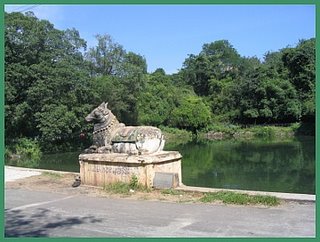A tasty favourite with monkeys is the Wood apple, or Elephant apple (because the fruit resembles the skin of an elephant) commonly found on Arunachala Hill. The unripe fruit is considered to be a useful astringent in diarrhoea and dysentery, and the ripe fruit (which is edible) is prescribed for afflictions of the gums or throat. The fruit is called Dadhiphala in Sanskrit, as its taste is compared with that of Dadhi or coagulated milk. The leaves are aromatic and carminative.
The fruit is cold, dry, refreshing, astringent, cardiacal and tonic, and is a useful remedy in salivation and sore throat, strengthening gums and acting as an astringent. Sherbet made from the fruit increases appetite and has antidote properties.
The pulp applied externally is a remedy for bites of venomous insects; if the pulp is not available then the powdered rind of the fruit may be used. It is also prescribed to relieve bowel afflictions. The fruit when cultivated, reaches a diameter of approximately four inches. Rural folk pound the leaves with curds and apply the mixture to the whole body as a remedy for heat of blood supposed to be caused by bile.
Thus the Wood Apple is multi functional and effective, and this is but one small item of the many indigenous ones that are prevalent around the Hill. What a pity so much is being forgotten so quickly! More info on fruits and herbs to come.











